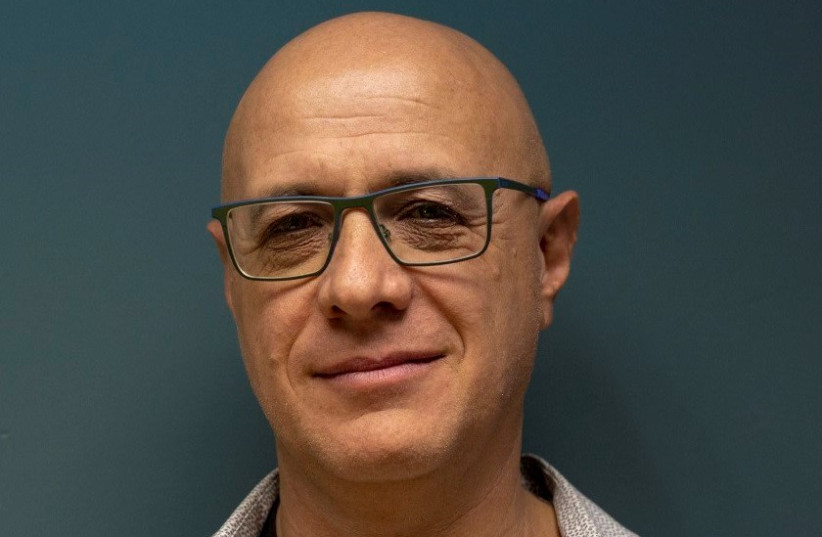Protesting hi-tech workers blocked several main Tel Aviv streets on Tuesday in the latest in a long series of protests against the judicial reform, which many experts agree will harm Israel’s hi-tech sector and economy.
Dr. Leo Beckman is the founder and Chair of the Israel Innovation Institute, a not-for-profit organization that has been very involved in the ongoing fight against the judicial reform. According to him, the point of the opposition against the legal system’s upheaval is less to prevent the reform — which he believes is practically inevitable given the current government’s composition — and more to mitigate the damage to the economy that it will certainly cause.
“You can look at it as damage control. And it's very severe damage control because the damages are huge,” Beckman said.
Combatting the reform with preemptive measures
There are several steps necessary in achieving that goal, beginning with the preemptive measure of combatting the reform while it’s still up in the air, and making it very clear to everyone everywhere that it will, indeed, change the very makeup of the country.
“The first goal is to make sure that more and more people are joining this process where we're trying to oppose this revolution. And every week more and more people understand that we are dealing with the question of what kind of culture we would like to have here: a democratic Jewish state, or a religious Jewish state — which is also okay, but that was not the main idea of Israel’s Zionist establishment.”

The hi-tech sector’s primary fear revolves around the judicial reform’s effect on Israel’s sovereign credit rating and reputation among foreign investors, as it would directly undermine the system of checks and balances within Israel’s government, thus increasing the inherent risk in investing in the country’s economy.
Israeli hi-tech represents about a quarter of the State's economy and over half of its exports, and it relies heavily on foreign direct investment. Experts have warned that harming the sector’s investments may result in the flight of Israel’s hi-tech companies to other countries which would make them more viable to investors.
“Hi-tech is around 11% of Israel’s workforce, 25% of taxes come from hi-tech and it makes up 50% of Israel’s exports. Now take part of the hi-tech people and money out of this equation, and the immediate impact will be on our health systems and security, because someone has to pay for it, and that money comes from hi-tech,” Beckman elaborated, going on to emphasize just how much state funding comes from the hi-tech sector via taxes.
“There are hi-tech salaries that are almost three times more than the average income in other sectors in Israel. This is where the money is, this is where the economic growth opportunities are,” he said. “So of course, if you are killing the future companies of the sector, if you are making it harder for international players to make the decision to come here and not elsewhere, then it will be huge. And we're already experiencing it.”
Already several global financial organizations — including JPMorgan and S&P — have issued statements highlighting the increased investment risk posed by the judicial overhaul, and there have been several instances of Israeli tech companies — such as Papaya Global and Disruptive Technologies Venture Capital — pulling out of Israel’s economy.
“So of course, if you are killing the future companies of the sector, if you are making it harder for international players to make the decision to come here and not elsewhere, then it will be huge."
Dr. Leo Beckman
Beckman explained that the Israel Innovation Institute is laying the groundwork now in order to ensure that “even if people will start to leave, and the startup nation will start to move to other places around the world, that we won't lose contact with these people, and the critical mass of people will be able to come back to it and move forward with its activities when the situation improves.”
Though current signs point to the reform being passed, at least in some capacity, Beckman stated that there is certainly no end in sight to the fight against it. “I can assure you that we are here to stay and to fight and to make sure that, first of all, Israel will remain a Jewish Democracy. But if [the reform is passed], to make sure that we will still have something to work with because it's a bit hard to think how we can live here without the hi-tech sector’s contribution to the economy.”
“We're fighting against something, which for us is much deeper,” he continued. “We all feel that, regrettably, what is going on here is an attack on the declaration of liberty of Israel, an attack on the very essence of what Israel is all about, which is Jewish democracy. And I think that it is not less than that.”
